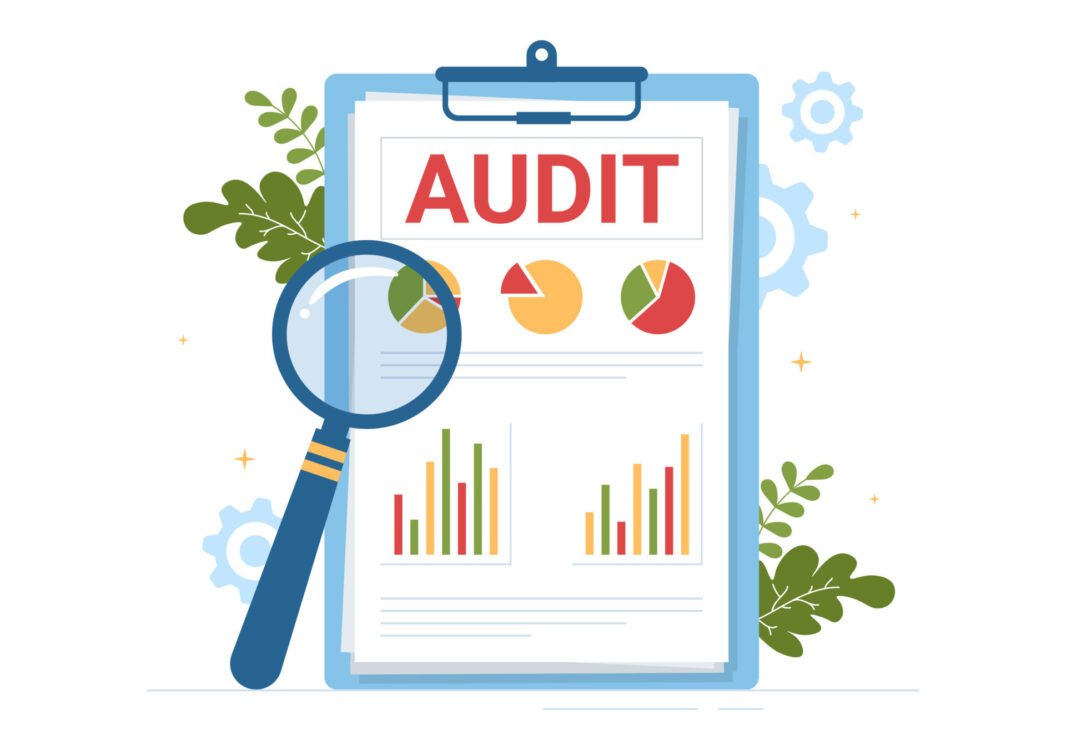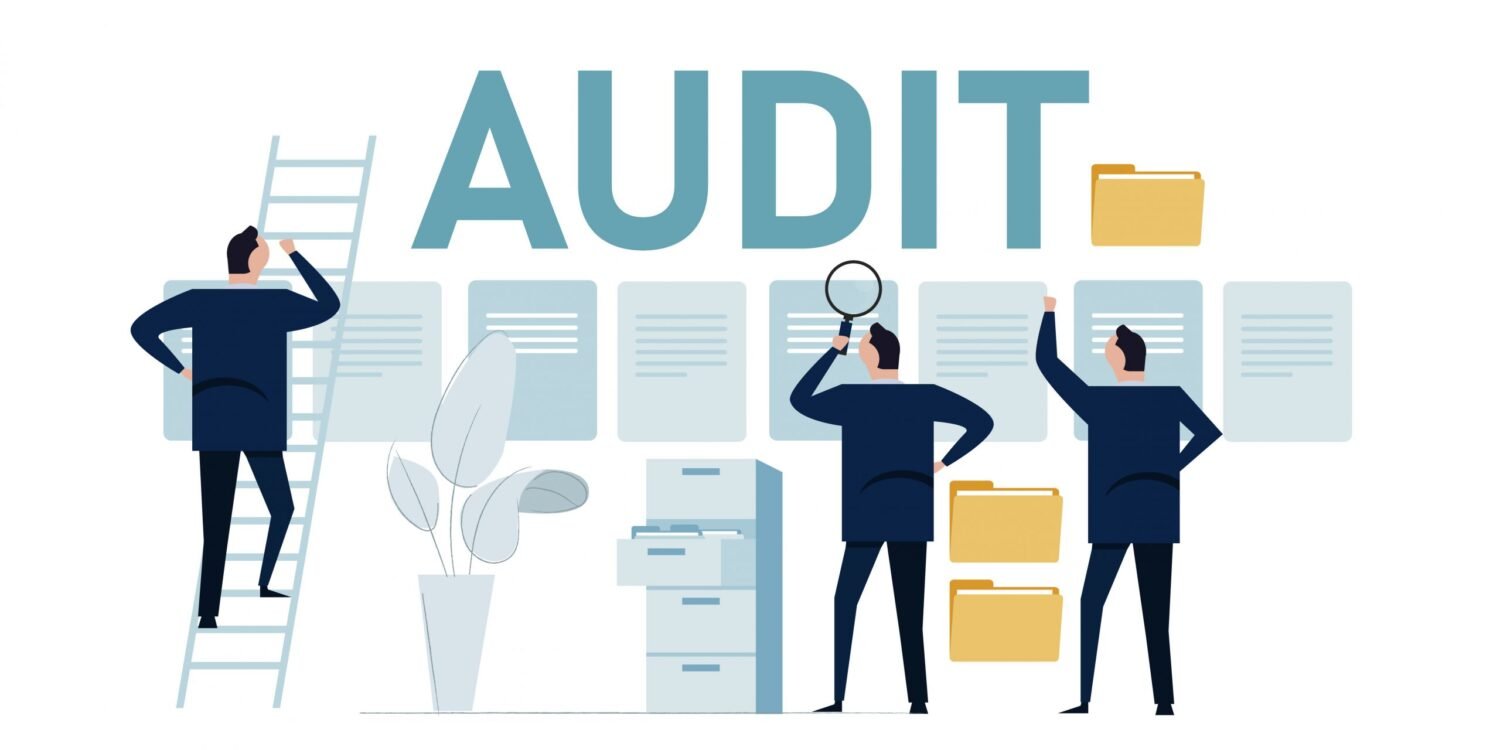Tailored Audit Solutions: 4 Stages of Growth Explained
The journey from a small startup to a fully scaled company is exciting — but it’s also full of financial and operational complexities. Each growth stage comes with unique challenges, and one area that often gets overlooked is auditing. Whether you’re just getting your business off the ground or managing a thriving mid-sized enterprise, tailored audit solutions ensure your financial health, compliance, and investor confidence remain intact. In this guide, we’ll explore how audit needs evolve through different business stages, and how you can implement the right solutions at each step. Why One-Size-Fits-All Doesn’t Work in Auditing Many business owners assume that audits are the same for every company, but that’s far from the truth. The requirements, scope, and complexity of an audit depend on factors like: Business size and revenue Industry-specific compliance requirements Investor and lender expectations Internal process maturity All tailored audit solutions should comply with AICPA auditing standards to maintain professional integrity. A startup’s needs differ vastly from a scaleup’s — which is where tailored audit solutions come in. Stage 1: Startups — Building a Strong Financial Foundation Audit Focus:At this stage, formal audits may not be legally required, but early adoption of financial review processes builds credibility. Tailored Audit Solutions for Startups: Bookkeeping Review Audits – Ensures accurate records for tax filings. Compliance Checkups – Basic checks for state and federal requirements. Pre-Investment Financial Reviews – Helps attract angel investors and venture capital. Software Recommendation: Cloud-based tools like QuickBooks Online + entry-level audit checklists. Why It Matters:Investors want transparency. Even without a legal mandate, early audits signal professionalism and reduce the risk of future issues. Stage 2: Emerging Growth — Preparing for Bigger Stakes Audit Focus:As revenue grows, so does operational complexity. Lenders, investors, and regulators will expect stronger financial oversight. Tailored Audit Solutions for Emerging Growth Businesses: Limited-Scope Audits – Focus on high-risk areas like cash flow and inventory. GAAP Compliance Audits – Ensures adherence to U.S. Generally Accepted Accounting Principles. Internal Control Assessments – Identifies weaknesses before they become costly. Software Recommendation: Audit Board or CCH ProSystem fox for structured engagements. Why It Matters:Mistakes at this stage can scare off potential Series A/B investors or cause tax and compliance headaches. Stage 3: Scaleups — Complex Operations, Higher Risks Audit Focus:With multiple revenue streams, large teams, and possibly international operations, scaleups face more intense scrutiny. Tailored Audit Solutions for Scaleups: Full External Financial Audits – Annual independent verification of financial statements. SOX Compliance Audits – If publicly traded or preparing for IPO. IT & Cybersecurity Audits – Critical for tech-driven businesses. Operational Audits – Reviews efficiency and cost-effectiveness of business processes. Software Recommendation: CaseWare IDEA or TeamMate+ Audit for enterprise-level analytics. Why It Matters:Scaling introduces risk. Thorough, tailored audits maintain trust with stakeholders, especially when preparing for IPO, mergers, or acquisitions. Stage 4: Continuous Growth — Maintaining Excellence Audit Focus:After reaching scale, the challenge shifts from growth to sustainability and efficiency. Tailored Audit Solutions for Mature Businesses: Continuous Auditing with AI – Ongoing risk detection through automated systems. Regulatory Audits – Keeps the company compliant with evolving laws. Sustainability Audits – ESG-focused reviews to meet investor and public expectations. Software Recommendation: Mind Bridge Ai Auditor for continuous monitoring. Why It Matters:Consistency in audit practices protects reputation, avoids fines, and improves decision-making. The Benefits of Tailored Audit Solutions at Every Stage No matter your growth phase, customized audits: Improve decision-making with accurate financial data Reduce risk through early issue detection Increase investor and lender confidence Ensure compliance with U.S. laws and industry standards Save time with relevant, stage-appropriate tools How to Choose the Right Tailored Audit Solution for Your Stage Assess Your Current Needs – Revenue, team size, compliance requirements. Identify High-Risk Areas – Cash management, inventory, IT security. Pick the Right Tools – Cloud vs. desktop, automation features, integration options. Work with Experienced Auditors – Choose professionals who understand your industry and stage. Plan for the Next Stage – Implement scalable solutions that grow with your business. Final Thoughts The audit strategy that works for a 5-person startup won’t suit a 500-person scaleup. By adopting tailored audit solutions for each growth stage, you’ll not only stay compliant but also position your business for long-term success. Think of audits as more than a regulatory checkbox — they’re a growth tool, an investor magnet, and a safeguard for your company’s future.
Read MoreHow an Account Audit Can Strengthen Your Business Compliance in the USA
In today’s fast-paced business world, staying compliant with financial regulations is non-negotiable. An account audit isn’t just a regulatory requirement — it’s a powerful tool that can uncover inefficiencies, prevent fraud, and foster trust with stakeholders. Whether you’re a startup or an established enterprise in the USA, regular audits can safeguard your company’s future. What Is an Account Audit? An account audit is a comprehensive review of your financial records, statements, and internal controls. This process can be: Internal – Conducted by in-house accounting staff or internal audit teams External – Performed by independent CPA firms or third-party auditors The goal is to ensure that all financial data is accurate, complete, and in accordance with accounting standards such as GAAP (Generally Accepted Accounting Principles) in the United States. Why Account Audits Are Essential for US Businesses 1. Regulatory Compliance The IRS, state agencies, and industry-specific regulators require accurate reporting. Failing to comply with tax and audit regulations can result in: Hefty fines Business closure Loss of licenses or certifications 2. Fraud Detection and Prevention Audits help uncover: Embezzlement Misstatements Financial manipulation By tightening internal controls, businesses can reduce the chances of fraud before it becomes a major issue. 3. Investor & Stakeholder Confidence An external audit builds trust with: Investors Lenders Partners They see audited statements as proof of financial health and transparency. 4. Better Financial Decisions When your financials are accurate, you can make smarter decisions about: Budgeting Hiring Expansion Investment Types of Account Audits in the USA ✅ Financial Statement Audit This is the most common type. It provides a detailed opinion on the fairness of your financial statements. ✅ Compliance Audit Checks whether your business is following applicable rules, tax laws, and financial reporting standards. ✅ Operational Audit Focuses on the efficiency and effectiveness of business operations. ✅ Forensic Audit Conducted when there is suspicion of fraud or financial crime. When Should You Schedule an Account Audit? Here are key times when a business should consider an audit: Annually – As a best practice, especially if required by stakeholders Before Seeking Investment or Loan – To build credibility During Mergers or Acquisitions – Ensures accurate valuation When Changing CFO or Accounting Firms – For smooth transition After Rapid Growth or Major Changes – To recalibrate systems Internal Audit vs. External Audit: What’s the Difference? Feature Internal Audit External Audit Conducted By In-house staff Independent third-party auditors Purpose Improve operations & compliance Provide assurance to stakeholders Frequency Ongoing or periodic Usually annually Reporting To Management Shareholders, regulators, investors Both types are valuable and often used together for full financial transparency. How to Prepare for an Account Audit Preparing for an audit doesn’t have to be stressful if you stay organized. Here’s what to do: 🔹 Gather Financial Documents Balance sheet Income statement Bank statements General ledger Tax returns 🔹 Review Internal Controls Ensure your accounting systems have checks and balances to prevent errors and fraud. 🔹 Assign a Point of Contact Choose someone (like your CFO or accountant) to work closely with the auditors and answer any questions. 🔹 Conduct a Pre-Audit Check Run a mock audit or review to find and fix discrepancies before the real audit begins. Common Audit Mistakes to Avoid Poor Record-Keeping – Leads to red flags and delays Inconsistent Accounting Methods – Violates GAAP and may cause penalties Non-Compliance with Tax Laws – Could trigger an IRS audit or legal issues Overreliance on Manual Processes – Increases risk of human error Switching to digital bookkeeping and audit-ready tools can help avoid these mistakes. Benefits of Hiring a Professional Audit Service in the USA Working with a professional accounting or auditing firm in the U.S. ensures: Up-to-date knowledge of federal and state laws Unbiased insights into your financial health Professional documentation that can be used for loans or investors Audit defense support if you’re ever reviewed by the IRS Final Thoughts: Make Audits a Strategic Asset Account audits shouldn’t be seen as a burden — they’re a strategic advantage. They can help your business operate more efficiently, comply with the law, and prepare for future growth. Whether you’re a small business or a growing enterprise, regular audits ensure you’re always on solid financial ground.
Read MoreTop Audit Software Tools Every CPA in the USA Should Use (2025)
Top audit software tools are transforming how CPAs and accounting firms in the USA conduct audits in 2025. From increasing regulatory demands to growing client expectations, auditors now rely on advanced platforms to streamline processes, ensure compliance, and deliver accurate results. In this guide, we explore the most trusted audit software solutions professionals use across the country to stay ahead. Why Audit Software Matters More Than Ever Auditing today is no longer just about ticking boxes. With stricter compliance standards, more complex financial landscapes, and increased client expectations, auditors must leverage technology to perform smarter, faster, and more accurate audits. Audit software helps: Reduce human error Automate repetitive tasks Identify high-risk areas quickly Ensure regulatory compliance (GAAP, SOX, IRS) Streamline client collaboration The right tool can save hundreds of hours per engagement, improve documentation, and even uncover fraud before it becomes a major issue. What Makes an Audit Software Tool Ideal for CPAs? Before we jump into the top tools, let’s understand what features matter most when evaluating audit software for CPAs in the U.S. Among all the top audit software tools, CPAs prefer solutions that offer seamless integration, risk detection, and client collaboration. 1. Compliance with U.S. Regulations Good audit software must support standards like: Generally Accepted Accounting Principles (GAAP) Sarbanes-Oxley (SOX) IRS audit frameworks AICPA audit guidance 2. Data Analytics & Risk Assessment Modern tools use AI and data analytics to highlight anomalies, outliers, and trends—helping CPAs focus on areas that need attention. 3. Integration Capabilities Audit tools should sync seamlessly with major accounting platforms like QuickBooks, Xero, Sage, and ERPs like NetSuite or SAP. 4. User-Friendly Interface & Collaboration Ease of use, real-time client collaboration, and customizable dashboards go a long way in making audit engagements smooth. 5. Cloud-Based Access & Security In the post-COVID remote world, secure cloud-based access is essential. Bonus points for end-to-end encryption and SOC 2 compliance. Why CPAs Are Switching to Top Audit Software Tools in 2025” Let’s explore the best audit software USA-based CPAs are relying on in 2025: 1. CaseWare IDEA Best For: Advanced data analytics and fraud detectionWhy It Stands Out: Powerful audit analytics and sampling tools Built-in statistical tests to uncover anomalies Used widely in forensic audits and large-scale engagements Supports more than 100 data formats Why CPAs Love It:IDEA goes beyond basic audits—it helps auditors uncover fraud and perform in-depth analysis with minimal effort. 2. Audit Board Best For: Enterprise-level risk-based audits and SOX complianceWhy It Stands Out: Unified risk, audit, and compliance management Intuitive cloud-based platform Offers continuous monitoring and internal control tracking For larger firms needing SOX compliance, top audit software tools like Audit Board simplify governance workflows. Why CPAs Love It:Audit Board is ideal for mid-sized to large CPA firms managing complex audit programs across multiple industries. 3. CCH ProSystem fix Engagement (Wolters Kluwer) Best For: Traditional audit documentation and complianceWhy It Stands Out: Trusted legacy system by thousands of CPA firms Powerful trial balance, workpaper management, and reporting tools Seamless integration with CCH Axcess Tax & Practice Why CPAs Love It:It’s a reliable, proven choice for firms that prefer desktop or hybrid deployment without sacrificing power. 4. Mind Bridge Ai Auditor Best For: AI-powered audit insightsWhy It Stands Out: Uses machine learning to score transaction risk Visualizes high-risk areas across GL data Automated fraud detection Why CPAs Love It:Mind Bridge makes it easy for firms to leverage AI without needing a data science team. It’s an excellent choice for tech-savvy practices. 5. Thomson Reuters Checkpoint Tools Best For: Audit research and regulatory complianceWhy It Stands Out: Provides up-to-date checklists and templates Integrates with U.S. GAAP, IFRS, PCAOB, and SEC guidance Helps ensure compliance in highly regulated industries Why CPAs Love It:Checkpoint Tools are essential for firms that prioritize accuracy, compliance, and up-to-the-minute audit regulations. 6. TeamMate+ Audit (Wolters Kluwer) Best For: Internal audit management for larger firmsWhy It Stands Out: End-to-end audit lifecycle management Strong dashboards and KPI tracking Flexible, scalable, and cloud-ready Why CPAs Love It:It’s designed for large teams and internal auditors who need oversight across multiple audit projects and controls. 7. Suralink Smart Audit Platform Best For: Client collaboration and request managementWhy It Stands Out: Real-time PBC (Prepared By Client) list tracking Secure client communication portal Request workflow automation Why CPAs Love It:It cuts down audit delays caused by poor communication. Ideal for firms that manage multiple clients simultaneously. Comparison Table: Top Audit Software Tools (2025) Here’s a quick side-by-side comparison of the top audit software tools based on features, pricing, and compatibility. Software Tool Best For AI Support Cloud-Based Target Firm Size IDEA Data Analytics ❌ ✅ Mid to Large Audit Board SOX & Risk ✅ ✅ Mid to Enterprise CCH ProSystem fx Compliance ❌ Partial Small to Mid Mind Bridge AI Auditing ✅ ✅ All Sizes Checkpoint Tools Regulation & Research ❌ ✅ All Sizes Team-mate+ Internal Audit ✅ ✅ Large Firms Sural ink Client Collaboration ❌ ✅ All Sizes How to Choose the Right Audit Software for Your Firm Here are a few quick questions to help narrow down your choice: Do you need AI features or basic checklists?Go for MindBridge if you want machine learning; choose CCH or Checkpoint for traditional audits. Are your clients enterprise-level or SMBs?AuditBoard is great for enterprises. Suralink and CCH are solid for smaller firms. Is real-time collaboration important?Then Suralink is your best bet. Are you managing internal audits or external client engagements?Choose TeamMate+ for internal audits, CaseWare IDEA for external investigations. Audit Tech Trends CPAs Should Watch in 2025 AI-Driven Risk Assessment:AI helps spot fraud, suspicious transactions, and patterns human auditors may miss. Remote & Hybrid Auditing:Cloud tools enable audits to happen seamlessly from anywhere, with secure document exchange. Cybersecurity Audits:More clients are asking CPAs to review cybersecurity controls, especially with SOC 2 and NIST compliance on the rise. Final Thoughts: Upgrade Your Audit Process Today With the explosion of data and increasing regulatory demands, CPAs in the USA need modern tools to perform high-quality audits efficiently. Whether
Read MoreWhy Audit Services Are Crucial for U.S. Businesses in 2025
An audit isn’t just about compliance but transparency, trust, and smart business decisions. Whether you’re preparing for investors or seeking operational insights, professional audit services in the USA are essential. Types of Audit Services Internal Audit – Evaluate internal controls and risk management External Audit – Independent review for compliance and accuracy Compliance Audit – Ensures industry-specific regulations are followed Financial Statement Audit – Verifies the accuracy of financial records Why Businesses Need Audit Services Detect and prevent fraud Ensure tax and legal compliance Build investor and stakeholder trust Gain valuable insights into financial performance When Should You Consider an Audit? Before raising funds or going public If your business handles large transactions When required by law (public companies, nonprofits) During mergers or acquisitions Leading Audit Firms in the USA BDO USA LLP Grant Thornton RSM US Eide Bailly Deloitte (for large corporations) Conclusion Audit services in the USA aren’t just a formality—they’re a strategic tool. Regular audits safeguard your business, uncover inefficiencies, and support long-term sustainability.
Read More



